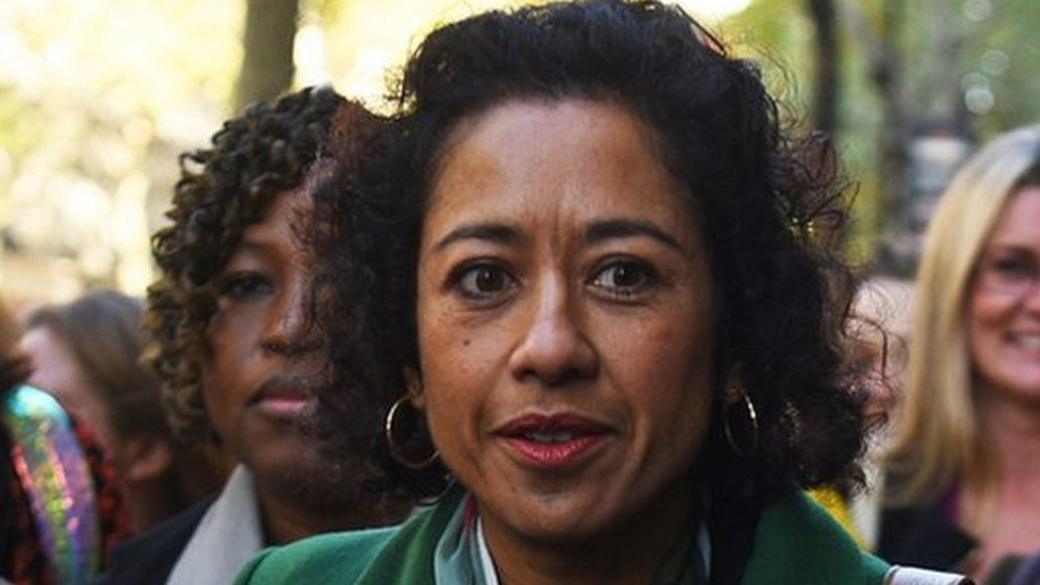Samira Ahmed wins BBC equal pay tribunal
- Published
Samira Ahmed wins equal pay tribunal
Presenter Samira Ahmed has won the employment tribunal she brought against the BBC in a dispute over equal pay.
Ahmed claimed she was underpaid by £700,000 for hosting audience feedback show Newswatch compared with Jeremy Vine's salary for Points of View.
The unanimous judgement said, external her work was like that done by Vine, and the BBC had failed to prove the pay gap wasn't because of sex discrimination.
Ahmed said she was "glad it's been resolved".
"No woman wants to have to take action against their own employer," she said, adding: "I love working for the BBC."
In response, the BBC insisted the pay for Ahmed and Vine "was not determined by their gender".
Describing Ahmed as "an excellent journalist and presenter", the corporation added: "We regret that this case ever had to go to tribunal."
The BBC said it would "work together with Samira to move on in a positive way".
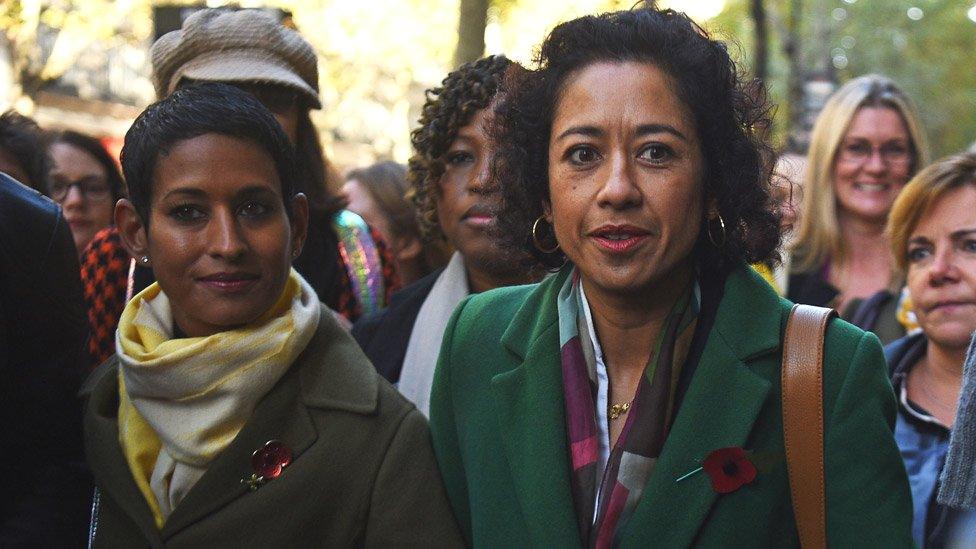
Ahmed (right) was accompanied by BBC Breakfast's Naga Munchetty on the tribunal's first day
Ahmed thanked the National Union of Journalists (NUJ), her legal team and "everyone - all the men and women who've supported me and the issue of equal pay". She added: "I'm now looking forward to continuing to do my job, to report on stories and not being one".
Ahmed had told the tribunal, which ended in November, that she "could not understand how pay for me, a woman, could be so much lower than Jeremy Vine, a man, for presenting very similar programmes and doing very similar work".
Vine got £3,000 per episode for BBC One's Points of View between 2008 and 2018. Ahmed was paid £440 for Newswatch, which is shown on the BBC News Channel and BBC Breakfast.
'Glint in the eye'
The tribunal judgement said: "The difference in pay in this case is striking. Jeremy Vine was paid more than six times what the claimant was paid for doing the same work as her."
The BBC had argued that Ahmed and Vine performed "very different roles". But the judgement said the corporation did not produce evidence to prove the different levels of pay were based on differences in the presenters' roles, programmes and profiles.
The judgement did not say whether Ahmed will receive the compensation she said she was owed.
The judgement stated: "We do not accept that the lighter tone of Points of View meant that the claimant's work and that of Mr Vine were not broadly similar."
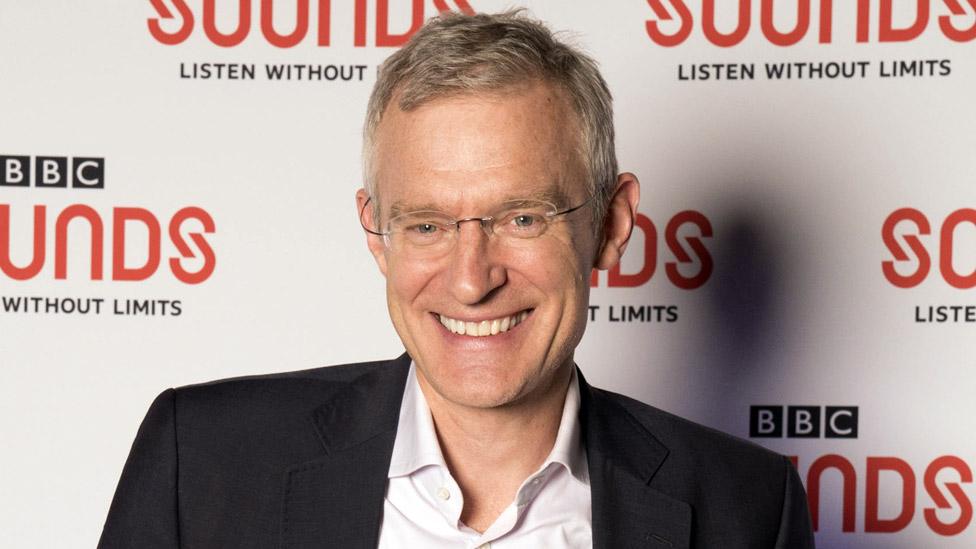
Jeremy Vine hosted Points of View for a decade until 2018
It added that despite the BBC saying the presenter of Points of View "needed to have 'a glint in the eye' and to be cheeky, we had difficulty in understanding what the respondent meant and how that translated into a 'skill' or 'experience' to do a job.
"The attempts at humour came from the script. Jeremy Vine read the script from the autocue. He read it in the tone in which it was written. If it told him to roll his eyes he did. It did not require any particular skill or experience to do that."
The BBC's legal team said Ahmed was paid the same as her Newswatch predecessor Ray Snoddy, who they said was her pay comparator, rather than Vine.
But Ahmed's closing submissions criticised the corporation's witnesses and evidence.
She also said BBC witnesses were prepared to give evidence "about matters that they had little knowledge of" and that the corporation had "repeatedly sought to make other unfair comments" about her credibility.

'Huge implications'
Analysis by Amol Rajan, BBC media editor
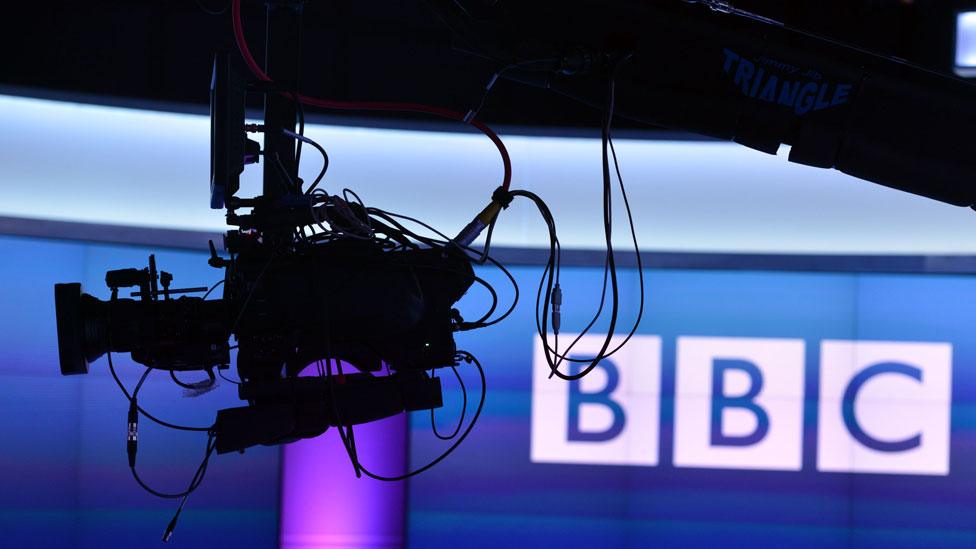
This is a complex judgement with potentially huge implications.
The position of the Tribunal is that all the arguments brought by the BBC to justify the difference in pay between Samira Ahmed and Jeremy Vine were insufficient.
In other words, the claim that Vine had greater profile, that Entertainment requires different skills to News, and that Points of View reaches more people didn't persuade the Tribunal that the difference is pay was justified.
The burden of proof fell on the BBC to show that that difference did not amount to sex discrimination. It failed.
The BBC and broadcasters across the globe have long thought it a common sense assertion that profile, fame, or stardust - call it what you will - justifies different pay rates for presenters who do similar work.
This case has exploded that proposition. It will encourage many other women to bring similar cases.
The BBC has made significant progress in recent years on both the gender pay gap across the organisation and some cases of equal pay.
But its journey on this issue, where it has sought to set a national example, is only just beginning.

National Union of Journalists (NUJ) general secretary Michelle Stanistreet said the union would seek the full back pay for Ahmed.
"We will be meeting with the BBC next week and hopefully common sense will prevail, this will be resolved, Samira gets her settlement and she can move on," she said.
It was "an incredibly brave decision on Samira's part" to bring the case to tribunal, Stanistreet told reporters. "You couldn't get a more emphatic win, a resounding victory," she said.
Around 20 similar cases are "in the pipeline of the actual tribunal system", with "as many as 70" unresolved at the time of the hearing, she added.
The BBC said it has been working hard to resolve these, adding the number of cases is significantly lower now.
"Some of them have already been satisfactorily resolved. But there are still more to sort out," she said.
Figures from broadcasting and beyond tweeted their support after the judgement was released.
Allow X content?
This article contains content provided by X. We ask for your permission before anything is loaded, as they may be using cookies and other technologies. You may want to read X’s cookie policy, external and privacy policy, external before accepting. To view this content choose ‘accept and continue’.

Allow X content?
This article contains content provided by X. We ask for your permission before anything is loaded, as they may be using cookies and other technologies. You may want to read X’s cookie policy, external and privacy policy, external before accepting. To view this content choose ‘accept and continue’.

Allow X content?
This article contains content provided by X. We ask for your permission before anything is loaded, as they may be using cookies and other technologies. You may want to read X’s cookie policy, external and privacy policy, external before accepting. To view this content choose ‘accept and continue’.

Stressing its commitment to equality and equal pay, the BBC said presenters - both female and male - had always been paid more for Points of View than Newswatch.
The corporation said: "We're sorry the tribunal didn't think the BBC provided enough evidence about specific decisions - we weren't able to call people who made decisions as far back as 2008 and have long since left the BBC."
It added that in the past its pay framework "was not transparent and fair enough" and that "we have made significant changes to address that".
"We're glad this satisfied the tribunal that there was sufficient evidence to explain her pay now."
In addition to Newswatch, Ahmed also co-hosts BBC Radio 4 arts show Front Row.

Follow us on Facebook, external, or on Twitter @BBCNewsEnts, external. If you have a story suggestion email entertainment.news@bbc.co.uk, external.
- Published7 November 2019
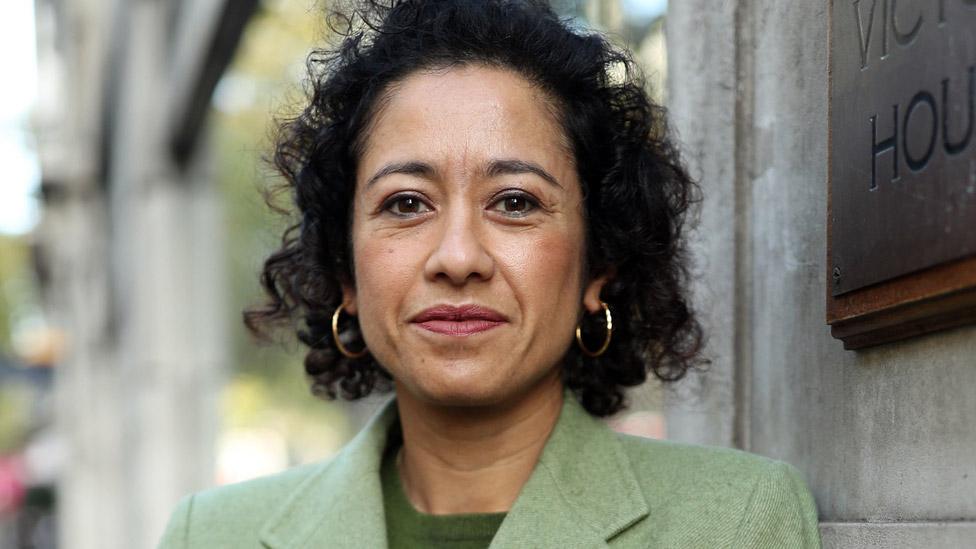
- Published30 October 2019
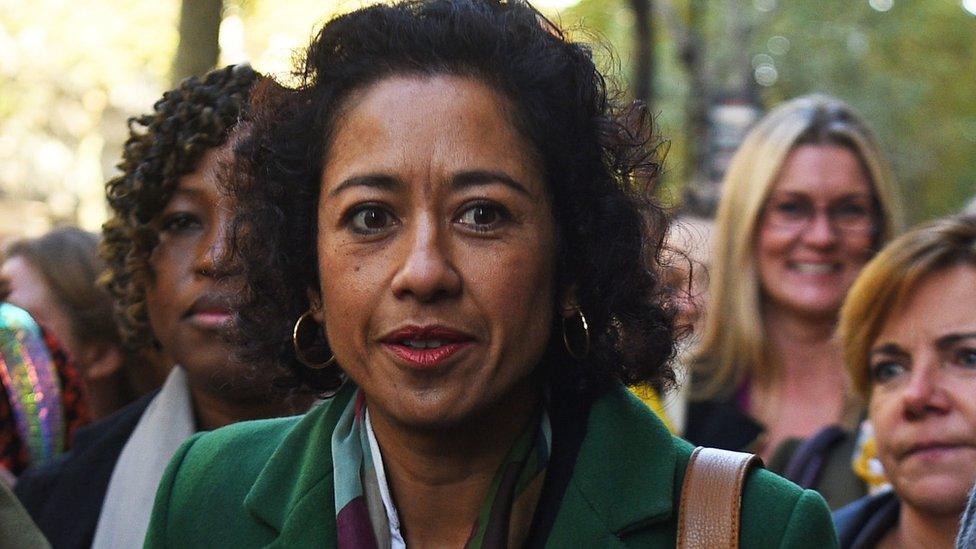
- Published29 October 2019
